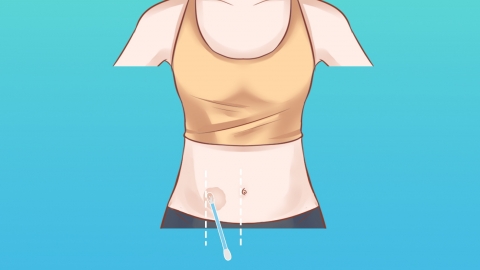What should I do if I have appendicitis?
Appendicitis requires timely medical diagnosis, surgical treatment based on the condition, following doctor's instructions for anti-infective medications, avoiding strenuous activities, and adjusting diet. If persistent pain in the lower right abdomen, fever, or vomiting occurs, immediate visit to a general surgery department is necessary.

1. Seek prompt medical diagnosis: Once symptoms suggestive of appendicitis appear, it is important to go to the hospital quickly for diagnostic tests such as blood routine examination and abdominal ultrasound. The doctor will assess the severity of the condition based on test results and formulate an individualized treatment plan to prevent delays that could lead to perforation.
2. Choose surgical treatment according to the condition: For diagnosed cases of acute appendicitis or acute exacerbation of chronic appendicitis, surgery is usually required. Options include traditional open surgery and laparoscopic minimally invasive surgery. The specific surgical approach should be determined by the physician considering factors such as the patient’s age and overall health.
3. Use anti-infective medications as prescribed: For mild cases of simple appendicitis or before and after surgery, antibiotics such as cephalosporins and metronidazole should be taken exactly as directed by the doctor to control inflammation and prevent the spread of infection. Do not adjust dosage or change medications without medical advice.
4. Avoid strenuous activity: During illness, physical activity should be reduced. Running, jumping, and other vigorous exercises should be avoided to prevent increased abdominal pressure, which may worsen pain or even trigger appendix perforation. Bed rest is recommended; gradually resume normal activity levels only after the condition stabilizes or during postoperative recovery.
5. Adjust diet: In the early stage of illness, especially when nausea and vomiting are present, fasting (no food or water) may be temporarily needed to reduce gastrointestinal burden. After symptoms improve, start with small amounts of light, easily digestible liquid or semi-liquid foods such as rice soup or porridge. Avoid spicy and greasy foods that may irritate the intestines.
In daily care, closely monitor changes in abdominal pain and body temperature. After surgery, keep the wound clean and dry to avoid infection from moisture. Gradually transition from liquid to normal diet, maintain regular sleep patterns to support recovery, and attend follow-up appointments regularly to ensure no recurrence of the condition.




